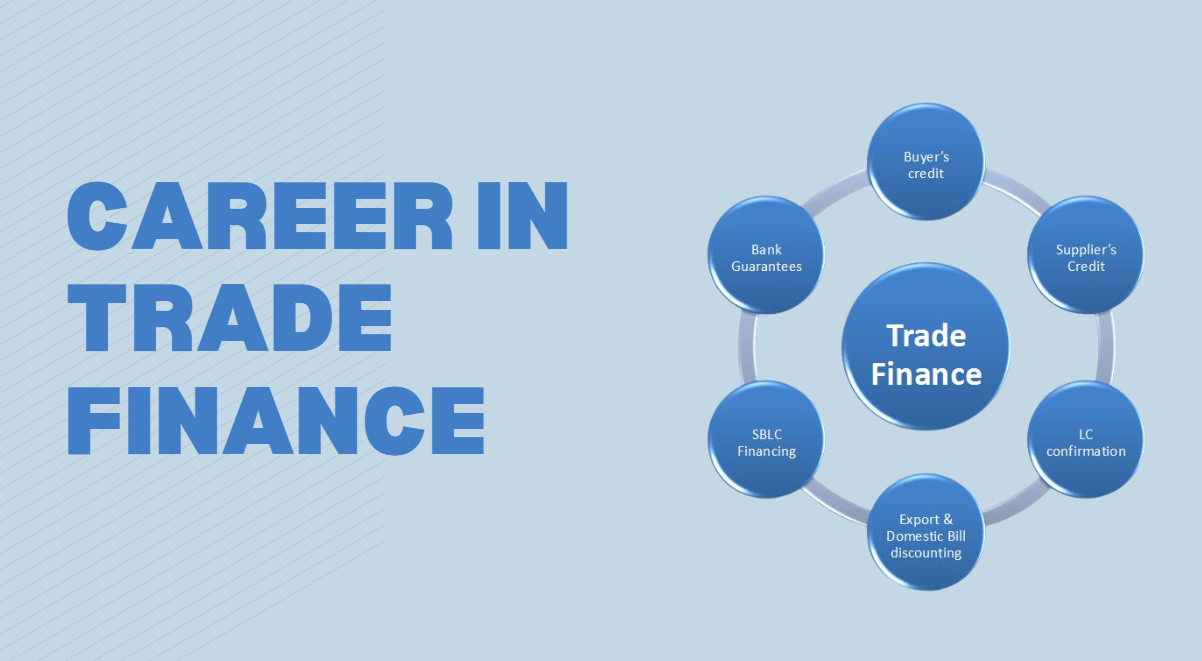There are no items in your cart
Add More
Add More
| Item Details | Price | ||
|---|---|---|---|

As the global economy continues to evolve, the need for skilled professionals in trade finance has never been greater. Trade finance plays a vital role in facilitating international commerce by bridging the gap between importers and exporters. It ensures smooth transactions, mitigates risks, and promotes global trade. For individuals aspiring to build a rewarding career in this dynamic field, understanding the path—including necessary qualifications, roles, and potential salary—is crucial. If you’re looking to break into this industry, a Certificate course in Trade Finance or other job oriented courses in banking and finance can offer you a head start. Let’s explore how to begin your journey in trade finance, the roles available, essential qualifications, expected salary ranges, and training courses to consider.
Trade finance refers to the financing of international trade transactions. It encompasses a range of financial products and instruments that companies use to facilitate global commerce. These include letters of credit, export and import financing, bank guarantees, and more. Professionals in this field work with banks, financial institutions, and multinational corporations to ensure smooth financial and logistical flows across borders.
Qualifications Required to Enter Trade Finance
Starting a career in trade finance typically requires a combination of formal education, professional training, and industry-specific certifications.
1. Educational Background
3. Skill Development Courses
Skills such as financial analysis, negotiation, documentation, compliance, and communication are critical in this field. Opting for a Skill development course in banking and finance helps bridge the gap between academic knowledge and practical application.
Recommended Courses and Workshops Many institutes and platforms offer industry-recognized certifications and training. Here are some courses and workshops that are ideal for freshers and early-career professionals:
Trade finance is a specialized domain within banking, offering a variety of career paths. Here are the most common roles:
1. Trade Finance Officer A trade finance officer handles import/export transactions, letters of credit, and liaises between clients and financial institutions. Responsibilities include verifying documentation, monitoring compliance, and coordinating with logistics and legal departments.
2. Relationship Manager – Trade Finance In this client-facing role, the relationship manager advises corporate clients on trade finance solutions and helps them optimize their international business operations.
3. Credit Analyst Credit analysts evaluate the creditworthiness of companies seeking trade finance services. They analyze financial statements, industry conditions, and transaction risks to make informed decisions.
4. Operations Executive – Trade Finance Operations executives handle the day-to-day processing of trade transactions, documentation, and coordination with internal teams and external clients.
5. Compliance and Risk Analyst This role involves ensuring that trade finance transactions adhere to regulatory guidelines, such as Anti-Money Laundering (AML) and Know Your Customer (KYC) policies.
To succeed in trade finance, professionals need a mix of technical and soft skills:
Trade finance offers long-term career stability and numerous opportunities for advancement:
Enrolling in a job oriented course in banking and finance can greatly enhance your chances of climbing the corporate ladder by equipping you with the latest tools and practices in the industry.
Trade finance is an exciting and financially rewarding career option, especially for those with a passion for international business and financial systems. Whether you're a fresher or someone looking to switch careers, investing in a Banking and Finance Course for freshers or a Skill development course in banking and finance can help you make a successful transition. With the right qualifications, practical experience, and commitment to continuous learning, you can thrive in this high-demand field. Start with a Certificate course in Trade Finance today and take your first step toward a global finance career that offers stability, growth, and excellent earning potential.

Pure Soul Institute of Training and Employment
A California-based travel writer, lover of food, oceans, and nature.